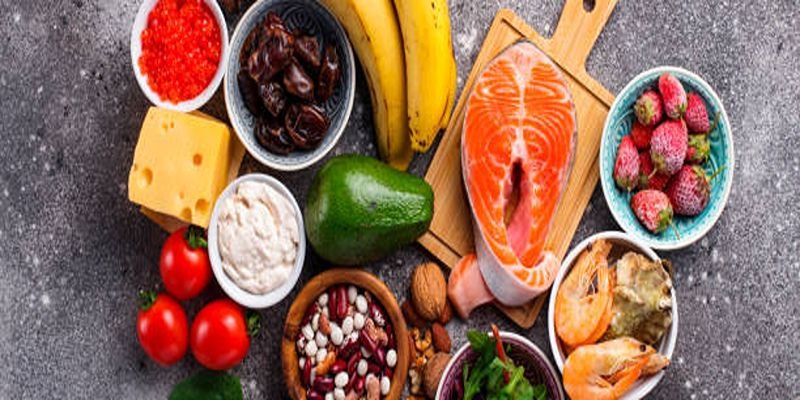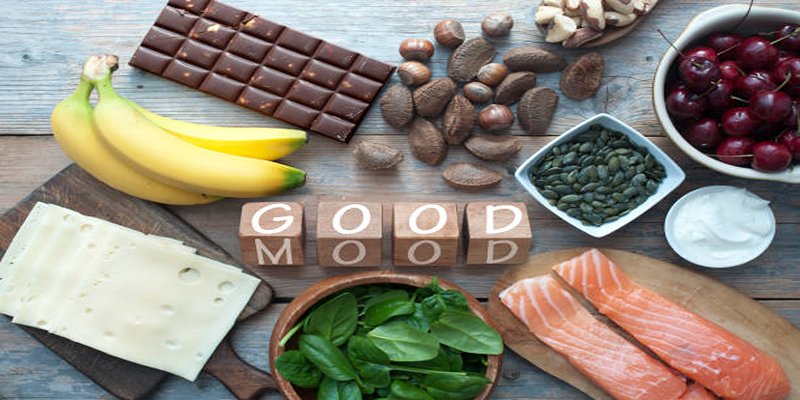Tryptophan is one of the amino acids your body requires to meet certain demand. It is involved in synthesis of certain bodies such as serotonin that has to do with your moods and melamine that has to do with sleep. Tryptophan is an essential amino acid, which means that your body does not produce it and you have to take it through foods such as turkey, eggs and nuts. This nutrient is essential for what you are and includes the support of you immune and nervous system. This knowledge of tryptophan will enable you make better decisions concerning your intake and create a better diet.
The Role of Tryptophan in the Body
Tryptophan is one of the nine essential amino acids, that is amino acids that cannot be synthesised within the body and must be obtained through the diet. This is a component that has a critical function in protein synthesis –which is important when constructing new tissues in your body or repairing tissues that have been torn. However, the most recognized role is that of a precursor of neurotransmitters such as serotonin and melatonin.
Serotonin: The "Feel-Good" Neurotransmitter
Serotonin is known as the “feel-good” neurotransmitter because it contributes to feelings of happiness and well-being. It also helps regulate mood, sleep, appetite, digestion, and sexual desire. Low levels of serotonin have been linked with depression, anxiety, and other mental health issues. Tryptophan is a key component in the production of serotonin, making it an essential nutrient for maintaining mental and emotional balance.
Melatonin: The "Sleep Hormone"
Melatonin is responsible for regulating your sleep-wake cycle, also known as your circadian rhythm. It helps you fall asleep, stay asleep, and wake up feeling refreshed. Tryptophan is converted into serotonin, which then gets converted into melatonin in the pineal gland to help regulate this important bodily process.
Food Sources of Tryptophan

Your body cannot produce tryptophan on its own, so you need to obtain it from food sources. Some of the best dietary sources of tryptophan include:
Turkey
Turkey is known for containing high levels of tryptophan, which is why it's often associated with making people sleepy after a big Thanksgiving meal. However, other food sources actually contain more tryptophan per serving than turkey.
Eggs
Eggs are another great source of tryptophan, as well as being a complete protein source. One large egg contains about 25% of your daily recommended intake of this essential amino acid.
Nuts and Seeds
Nuts and seeds like pumpkin seeds, almonds, cashews, and sesame seeds are all rich in tryptophan. They also provide beneficial healthy fats and important minerals like magnesium and zinc.
Meat and Fish
Other animal-based protein sources like chicken, beef, salmon, and tuna are also good sources of tryptophan. Eating a variety of these foods can help ensure you are getting enough tryptophan in your diet.
Grains and Legumes
Whole grains such as oats, quinoa, and brown rice, as well as legumes like lentils and chickpeas, also contain tryptophan. These plant-based sources are great options for vegetarians or vegans.
Benefits of Tryptophan
Aside from its role in producing serotonin and melatonin, tryptophan offers a range of benefits for your overall health.
Supports the Immune System
Tryptophan helps regulate immune responses by promoting the production of antibodies and cytokines, which are proteins that help fight off infections and diseases. It also helps maintain a balance between pro-inflammatory and anti-inflammatory molecules, which is crucial for a healthy immune system.
Aids in Digestion
Tryptophan plays a vital role in maintaining gut health. It helps produce neurotransmitters that regulate digestion, such as serotonin and gastrin. It also supports the growth of beneficial bacteria in the gut, which can improve digestive function.
Regulates Nervous System Function
Tryptophan is involved in the production of neurotransmitters that regulate nerve impulses, which are essential for communication between cells. This can help improve cognitive function, mood, and overall nervous system health.
Potential Risks or Side Effects
While tryptophan is essential for your body's functioning, consuming too much of it can lead to potential risks or side effects such as:
- Serotonin Syndrome: Excessive amounts of tryptophan can increase serotonin levels in the body, leading to a condition known as serotonin syndrome. Symptoms may include confusion, agitation, rapid heart rate, high blood pressure, and muscle stiffness.
- Digestive Issues: Consuming large doses of tryptophan supplements can cause digestive issues like nausea, vomiting, and diarrhea.
- Allergic Reactions: Some individuals may have allergic reactions to foods containing tryptophan or supplements made with it. If you experience symptoms like hives, difficulty breathing, or swelling after consuming tryptophan, seek medical attention immediately.
How to Incorporate Tryptophan Into Your Diet

Including tryptophan-rich foods in your diet can help you meet your daily needs of this essential amino acid. Some tips for incorporating tryptophan into your meals include:
- Add nuts and seeds to your breakfast: Sprinkle pumpkin seeds or almonds on your oatmeal or incorporate them into a homemade granola mix.
- Include eggs in your lunch or dinner: Hard-boiled eggs make for an easy protein-packed snack, while scrambled eggs can be added to salads, sandwiches, or served as a side dish.
- Incorporate turkey into meal rotations: Turkey doesn't have to be reserved for special occasions like Thanksgiving. Consider using it as a lean protein source in stir-fries, salads, wraps, and more.
Are Tryptophan Supplements Safe to Use?
Supplements containing tryptophan are generally considered safe when taken in recommended doses. However, as with any supplement, it's important to consult with a healthcare professional before adding them to your routine. They may interact with certain medications or conditions, and a medical professional can help determine the right dosage for your specific needs.
Conclusion
Incorporating tryptophan into your meals can offer a variety of health benefits, including improved sleep, mood regulation, and enhanced cognitive function. By including foods rich in tryptophan, such as nuts, seeds, eggs, and turkey, into your meal rotations, you can easily boost your intake of this essential amino acid. Remember to consult with a healthcare professional before considering tryptophan supplements, as they may interact with certain medications or conditions. Embrace the power of tryptophan-rich foods and unlock their potential for promoting overall wellness and vitality.












